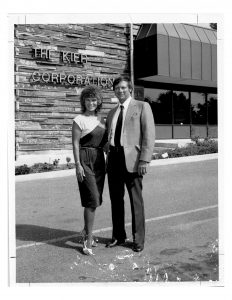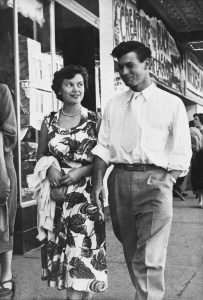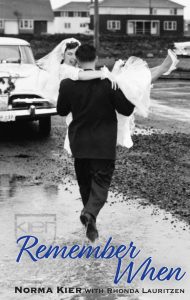
Of all the skills you might need at work, you can learn to become a business storyteller. Here we focus on five question prompts that will help you identify experiences that you can begin sharing with heart, right away.
A business storyteller is ready to share the answers to these timeless questions…
1. What is the greatest lesson your mentor taught?

When I began my career as a young snot-nose marketing director at the Ogden-Weber Technical College, the great Brent Wallis was wrapping up his. Brent Wallis had grown the institution from nothing and on my second week of the job, we hosted an accreditation team including the director over the accrediting agency. He told us after his visit, “I have never seen a finer technical college anywhere in the country.” That impressed me, and I was eager to learn what made this place special.
Brent was a high energy leader who expected excellence from everyone. I have been told in his younger years he might stomp around and kick a desk when people fell short. But my experience with him was full of kindness and encouragement. He went out of his way to talk to me personally. He made me feel important, even though I was several levels below in the chain of command.
Related: How and why you should curate a canon of personal business stories
Of all his fine qualities, one that shined was what a wonderful business storyteller he was. He often told stories about someone making a difference for students. In one meeting more than ten years ago, he told the following story:
On a blizzardy January morning Brent drove his car up the long wooded lane onto campus. His wipers swooshed thick flakes from the windshield, and his heater struggled to keep up with fog forming on the windows. The roads were not fully plowed yet, and as he maneuvered on the slippery road, he noticed a young mother trudging through the snow with a book-filled backpack plus a diaper bag. She pushed a stroller through the snow while guiding a toddler who she could not carry.

Brent slowed the car and rolled down a dripping window. He introduced himself saying, “Can I give you a lift?” He learned she was recently divorced and had enrolled in school to support her children. She took the bus each day, which dropped her off at Washington Boulevard. She then walked a quarter mile to drop her children off at the Children’s School on campus and then attended class all day. As winter skies darkened each evening, she retrieved her kids and trudged back to the bus stop.
Brent dropped her off, stomped snow from his shoes in his office and had his secretary dial the Utah Transit Authority to begin the process of getting the main bus stop moved onto the heart of campus. He also had a second stop added on the doorstep of the children’s school.
Years after his retirement process, we did a comprehensive strategic planning process and added the words “one student at a time” to our mission statement. As a business storyteller, Brent Wallis had been teaching these core values for years. He was intentionally driving home the imperative – do whatever is in your power to help individual students. As the president of the institution, he stopped his car to help one student. Then he lept into action, exercising the power he had to improve her situation. This is what we all should do.
Earlier in this article I said that telling business stories might be the simplest task you can undertake, while having the most lasting impact. The fact that I am repeating a story Brent Wallis told me more than a decade ago illustrates this point. I remember the details all these years later.
2. Tell me about a time someone did the right thing.

Brent Wallis wasn’t a guy who would squander time just reliving the good ole’ days. Rather, he was an intentional business storyteller, sharing the institution’s values in order to socialize new employees like me. How could he be sure that we would remain true after he retired? He shared example after example along the lines of someone stopping their car to help a student in need, figuring it was his best shot to pass on his canon of stories. He was right.
Let me share another example. A biography I had the privillege of workong on is of Norma and Jim Kier who founded Kier Construction and Kier Management. As I interviewed their employees, they told me many examples of the Kier family honesty and generosity. One employee told me of Jim Kier calling a subcontractor to say, “I think your bid is off, I suggest you take a look at it.” The error was in Jim’s favor, and the sub insisted the numbers were good. “Yep, go with it,” the man had told Jim, but Jim believed otherwise. He had a choice to make: accept the bid and reap a profit at this man’s expense or toss it out against the man’s wishes. Jim made the decision to go with another contractor even though it was not the low bid. Days later, the sub called him in a panic. Jim reassured him that had thrown the bid out. This was an example of the Kiers’ philosophy of treating everyone like family and having absolute integrity in everything they did. He would never make a buck while someone else lost their shirt.
Related: Our best family history interview questions
3. When did your product or service make the difference?

As a business storyteller, this is a biggie. You want to make sure you stand apart from other businesses and for a compelling reason. Allow me to share a personal exampe.
When I became a vice president at the technical college after Brent Wallis retired, I felt like I was in way over my head. Perhaps the only saving grace I had was that I loved students. In the face of so many tasks and competing priorities, I made one decision that would shape my time at the college. I would focus on one singular item: how each of us can make a difference for individual students who walk through our doors. So in every division meeting, we talked about that theme, again and again. I asked for people to send me real experiences to share with the whole team and with administration. We took opportunities in those meetings to shine a light on employees doing the right thing.
Here is one brief example of the sort of everyday moment I mean, an excerpt from a letter sent by a parent to one of our counselors. This mother wrote about her son who had been in an accident and suffered a brain injury. This young man had to watch his friends move on with their lives while he re-learned how to walk, talk and think. I got to meet this delightful student and his family at the honor society induction program.
Related: Sharing stories about hard things can change lives
Dear (counselor) –I wanted to extend an invitation to you to attend (our son’s) honor society ceremony. We are so grateful to you for all your efforts to help him through his struggles…We couldn’t be more pleased. His self-esteem has soared with all the successes he’s experienced in this program. We are making a big deal of this, as it really is a big deal, after all we’ve been through. It’s been (many) years, but, I think we finally see light at the end of the tunnel. Just wanted to extend an invitation to you for this event, as you’ve been such a big part of his success. Thanks for all you’ve done for him and hope to see you soon.
Now, this little excerpt might not seem like much, but it’s an example of everyday successes. I knew from experience how much heart this counselor put into helping students and it was not hard to share this example he thought was mundane. He was simply doing his job, but I believed otherwise. We can all be on the lookout for examples like these, and as business storytellers we can have them ready to share when opportunities come along.
4. Tell me about a time you didn’t know if you would make it.
If I have the chance to interview someone but only had the time to ask one question, this would be my choice. “Tell me about a time you didn’t know if you would make it,” is my all-time favorite interview question because it strikes at the “dark night of the soul” or the “why hast thou forsaken me,” moment in any story. These are the times when it seems that all is lost, the moments that lead to the biggest breakthroughs because you have to dig deep. Often there is a spiritual experience resulting in fundamental transformation. This is the stuff of great stories.
Related article: “I almost died.”
Indeed, if I can share one singular piece of advice about what makes a compelling story, it would be to look for stories that have a “dark night of the soul,” moment followed by personal transformation or growth. The story of a mother whose son was in a terrible accident and had to re-learn every task is a perfect example. His story ends with tremendous personal growth. Trust me, future generations will want to hear about these moments in your journey as a business storyteller and beyond.
By the way, I learned about this principle of storytelling from the great Blake Snyder in his epic how-to series for screenwriters, “Save the cat, the last book on screenwriting you’ll ever need.” I’m not exaggerating when I say that his books changed my whole perspective on how to tell a good story.
5. How did you start in business?
Jonah Sachs, author of Winning the Story Wars: Why Those Who Tell (and Live) the Best Stories Will Rule the Future says one type of story is particularly nutritive to a business, called Genesis stories. These share why a brand or company started and it generally strikes at the heart of an organization’s why. Every great business is a response to a real need, and the genesis story clarifies this, often stemming from an epiphany by the founder. As a business storyteller, having your origin story is both inspiring and great for marketing. If you’re interested in reading more on this topic, here is a great Fortune article entitled, “How Great Marketers Tell Stories.”

Another great genesis story I love telling is how Jim and Norma Kier started their business from nothing. As young newlyweds, they came to the United States from Canada with just $100 in their pockets. Their combined businesses will do nearly $200 million in 2017.
People naturally ask how you got started in the course of conversation because they are intrigued and this question is a close cousin to one of top 10 family history interview questions: “How did you meet?” I got this question from a marriage counselor who often begins sessions with new clients by asking it. It is an innocuous ice breaker question that gets people going, and there is usually a great story behind it. If nothing else, this genre of business story is fun to tell and a failsafe crowd pleaser. By the way, Jim and Norma Kier started dating by literal accident the night she was hit by a car and she was only 15. They got engaged on the night of her 16th birthday before a train whisked her away into the middle of nowhere at 11:59 p.m. You can’t make this stuff up. Theirs became an an epic love story and family business saga.

I hope these 5 questions help you find experiences and themes that lead to unforgettable business stories, or to write your life story. Being a business storyteller will not only help you relate to your clients, but it will also help you rediscover the roots of why you do what you do. If you are interested in reading more about becoming a better business storyteller but could use a little help, we at Evalogue.Life write client stories for a living and we love teaching the craft. If you’d like some pointers or assistance with the writing and editing processes, we would be delighted to hear from you.

Rhonda Lauritzen is the founder and an author at Evalogue.Life – Tell Your Story. Rhonda lives to hear and write about people’s lives. She believes that when you tell your story, it changes the ending., She and her husband Milan restored an 1890 Victorian in Ogden. She especially enjoys unplugging in nature. Check out her books: How to Storyboard, and Every Essential Element. Most recently she was the writing coach of bestselling author, Rob A. Gentile, who wrote Quarks of Light, A Near-Death Experience: What I Saw That Opened My Heart
Disclaimer: This page contains affiliate links which means if you purchase some of the products we mention by using our links, we make a commission. Be assured that I’m only sharing the methods I actually use, but I do appreciate when you buy with my links because it helps fund articles like this one.



Pingback: New book - Remember When - shows truth is better than fiction - Evalogue.Life - Tell Your Story